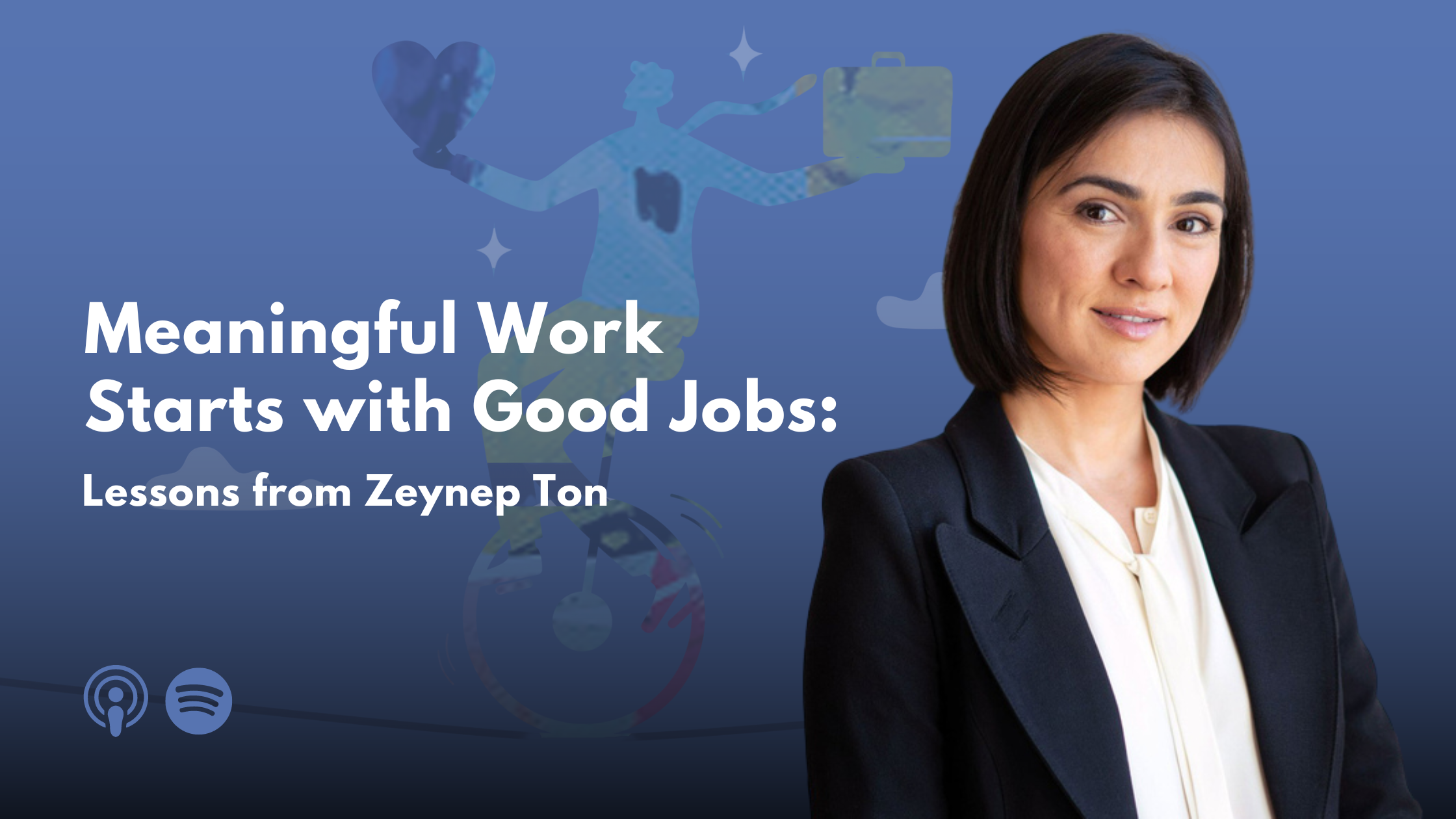This Meaningful Work Matters episode features Kim Cameron, a renowned expert in positive organizational scholarship and a faculty member at the University of Michigan's Ross School of Business.
Andrew and Kim discuss the essence of virtuous organizations and the incredible transformation they can bring about. Kim shares insights from his extensive research, including eight key dimensions pivotal in fostering an organization's virtuousness. From gratitude and appreciation to trust and integrity, these dimensions create a holistic environment for individuals to flourish.
Discover inspiring real-life stories of organizations that have embraced virtuousness in their cultures, even during challenging times like downsizing or a pandemic. This conversation with Kim Cameron is a must-listen if you want to understand how virtuous organizations can positively impact performance, well-being, and culture.
Stay connected with Meaningful Work Matters on your favorite podcast platform. Hit that "Follow" button to receive timely updates on new episodes and bonus content. If you love what you hear, take a moment to rate the podcast and leave a review. It helps us reach more listeners and build a community around meaningful work.
Positive Deviance Defined
Kim Cameron has been one of the driving forces behind Positive Organizational Scholarship (POS), an area of research that explores the what, how and why of positively deviant organizations. Organizations that are positively deviant go way beyond the usual expectations or norms. Not only do they achieve bottom-line performance, they also enact virtuous behavior, cultivate positive work culture, foster resilience, create inclusive growth and foster sustainable practices.
The Eight Dimensions of Virtuousness
Cameron identifies eight dimensions that contribute to virtuousness within organizations. These dimensions, when institutionalized, have been directly linked to high performance.
Gratitude and Appreciation: Recognizing employees' contributions through gratitude practices that make people feel valued and valuable.
Dignity and Respect: Work environments where all individuals are treated with dignity and are respected for their inherent worth.
Support and Compassion: Providing empathetic support to employees, especially when facing challenges or difficulties.
Caring and Concern: Closely related to compassion, it creates an environment where employees feel their well-being is a priority.
Meaningfulness and Purpose: having a profound organizational purpose beyond transactional objectives and ensuring employees find meaning by understanding how they contribute to it.
Positively Energizing Activities: Fostering positive energy through activities and behaviors that help others to dream, do, become, learn, and flourish.
Forgiveness and Understanding: Fosters a culture where mistakes are seen as opportunities for growth and learning, promoting an atmosphere of forgiveness.
Trust and Integrity: Ensuring that the organization operates with honesty and ethical principles, which in turn builds trust among employees and stakeholders.
These eight dimensions collectively contribute to an organizational culture that is not just focused on achieving financial success, but also on fostering a positive, virtuous, and supportive work environment. This holistic approach to organizational success is what differentiates such organizations and leads to exceptional performance across various metrics.
Virtuous Organizations in Action
In Derby, Connecticut, Griffin Hospital faced severe challenges, including a reputation for poor service, particularly in its OBGYN department. The crisis escalated when a respected director of operations, Pat Charmel was fired, sparking staff uproar. Employees, valuing Charmel's leadership, boldly interrupted a board meeting, demanding his reinstatement and the executives' dismissal. The board acquiesced, appointing Charmel as both President and CEO.
Charmel quickly addressed the hospital's negative image and discovered financial mismanagement by the previous CEO. Facing potential bankruptcy, he had to make tough decisions, including downsizing, which affected some of his strongest supporters.
Despite these hardships, Charmel's compassionate approach and strategic leadership turned the hospital around. Under his direction, Griffin Hospital recovered and thrived, especially during the pandemic. It prioritized community health by providing COVID testing and vaccination services to vulnerable populations, emphasizing virtuous, community-focused actions over immediate profit.
Courageous Leadership in Virtuous Organizations
To truly listen and be innovative like Pat Charmel requires taking risks. Cameron talks about the kind of courageous leadership and unequivocal support from the top that is required in virtuous organizations. However, change cannot be top-down only; it needs involvement and buy-in from all levels. That means that a critical attribute of leadership in virtuous organizations is the capacity to cultivate a culture of support, innovation, and inclusive change.
Positive Energy and Resilience During Adversity
Cameron illustrates the point by discussing the University of Michigan's Business and Finance Group, where ‘positive energizers’ were identified and empowered to effect change. The energizers were tasked with a challenge to spread positive practices across the organization. These practices ranged from small gestures like bringing flowers to larger systemic changes like reward system overhauls. Remarkably, even during the pandemic, this approach led to significant improvements across various dimensions, proving that positive energy and innovative, people-focused initiatives can build resilience and drive improvement, even in adversity.
Ethics and Empirical Evidence in Virtuous Organizations
Discussing the ethical dimensions of virtuous organizations, Cameron places ethics as a mid-point in a continuum, with unethical behavior on one end and virtuousness on the other. He advocates for organizations not just to avoid harm but to actively do good. Cameron argues that empirical evidence showing the positive impact on bottom-line results can inspire leaders to adopt virtuous practices.
Cameron’s insights highlight the transformative power of virtuousness within organizations. By institutionalizing positive practices, organizations can achieve extraordinary outcomes while fostering employee flourishing.













